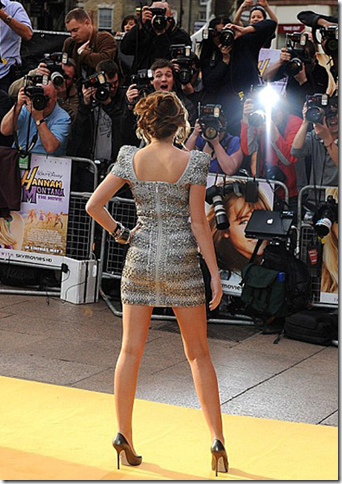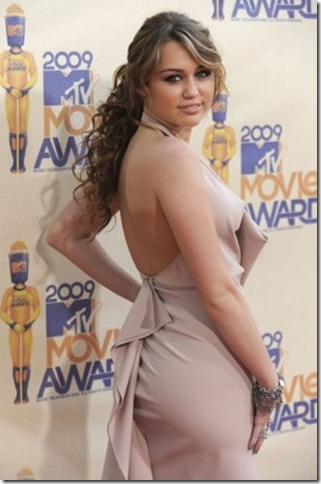Information about Usher Syndromes. You want to know what is that mean. I am giving you the links.
Usher Syndrome
Information About Usher Syndrome
Night Blindness:
* Can’t see when coming in from bright sunlight
* Trips over things when light changes or light is dim
* Stays near a light in a dark room or at night
* Moves a speaker so light falls on face
* May express a desire to enter a room before it is darkened (movie theater, etc.)
* Avoids conversations in a darkened area
* When walking along a road at night, may appear to stagger or lose balance after an oncoming car has passed
* Has problems reading under some lights or in dimly lit areas
Glare sensitive:
* Squints and shades eyes in bright lights or fluorescent lighting – complains that the light hurts his/her eyes
* Likes to wear sunglasses even in buildings, but especially in bright sunlight
* Avoids participating in outdoor sports when the sun is very bright
* May appear awkward when exiting from the inside to the outside of a building (when faced with bright light)
Needs contrast:
* Has difficulty reading light copies or ditto copies
* Often spills when pouring liquids
* Can’t see stars at night
Restricted field:
* Startles easily
* Seems to hold eyes in a different direction when looking at some things (because of islands of vision)
* Turns head while reading across a page
* Uses finger to mark place while reading
* Can’t find small objects that have been dropped
* Fails to glance at another person’s handwaving from the side
* Bumps into people, tables, and chairs
* Stumbles on stairs and curbs
* Is quiet in a large group or may edge him/herself to one side when placed in a group
* Frequently fails to understand or misses groups instruction. Often relies on friends for information
* May appear to ignore others standing by his/ her side
* Prefers conversation at distances of 4 to 6 ft.
Problems with visual acuity:
* Holds book close to eyes, or bends to read
* Places face close to desk while writing
* Sits near blackboard
Balance problems:
* Can’t ride a bicycle
* Is considered clumsy
* Loses balance easily in the dark
Other:
* Frequently last in completing group activities
* Exhibits symptoms of anxiousness in new areas
* Often last to enter the room
* May have some repetitive behavior (seems to do the same things in the same ways, or continues to order the same things at lunch)
* May choose to stay home alone rather than be faced with the embarrassment of dealing with a new situation in the dark
* May appear unconcerned and may fail to fully participate in groups activities
* Frequently hesitates at the top or bottom of stairs (for orientation)
* Avoids walking or running in unfamiliar areas, especially when there is bright sunlight or when in a darkened area
* Appears to be constantly visually scanning a group
Hearing Loss in Usher Syndrome
Type l
* Children are born profoundly deaf or with just a little hearing in the low tones at loud levels of sound.
* Most but not all state that hearing aids help only a little or not at all.
* Some young children are showing benefit from cochlear implants.
The list is exactly what I was doing in the past. That is why my option for cochlear implant to hear. This is help me balance and hear better. I’m plan to get bilateral cochlear implants after my childbirth.
My goal for Retinitis Pigmentosa can cure by stem cell research or retinal implant. Because I don’t want to get blind in the future. I’m still take an Eye Vitamin supplements from Ocuvite® Lutein Eye Vitamin and Mineral Supplements . This is helping me postpone the blinds in late 40’s to 60’s. Now, I can’t take this supplement during pregnancy. That’s not good for my baby. I am taking a prenatal with DHA and Omega-3. The DHA with Omega-3 is helping us healthy in brains and eyes. After my childbirth and will take my precious Eyes vitamin supplements again. I will never give it up.
 Who’s your favorite author that other people are NOT reading? The one you want to evangelize for, the one you would run popularity campaigns for? The author that, so far as you’re concerned, everyone should be reading–but that nobody seems to have heard of. You know, not JK Rowling, not Jane Austen, not Hemingway–everybody’s heard of them. The author that you think should be that famous and can’t understand why they’re not…
Who’s your favorite author that other people are NOT reading? The one you want to evangelize for, the one you would run popularity campaigns for? The author that, so far as you’re concerned, everyone should be reading–but that nobody seems to have heard of. You know, not JK Rowling, not Jane Austen, not Hemingway–everybody’s heard of them. The author that you think should be that famous and can’t understand why they’re not…







 Some of Tim’s Stories – S.E. Hinton – 160 pages
Some of Tim’s Stories – S.E. Hinton – 160 pages





